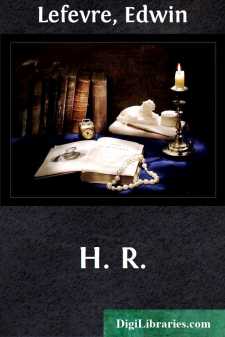Categories
- Antiques & Collectibles 13
- Architecture 36
- Art 48
- Bibles 22
- Biography & Autobiography 813
- Body, Mind & Spirit 142
- Business & Economics 28
- Children's Books 17
- Children's Fiction 14
- Computers 4
- Cooking 94
- Crafts & Hobbies 4
- Drama 346
- Education 46
- Family & Relationships 57
- Fiction 11829
- Games 19
- Gardening 17
- Health & Fitness 34
- History 1377
- House & Home 1
- Humor 147
- Juvenile Fiction 1873
- Juvenile Nonfiction 202
- Language Arts & Disciplines 88
- Law 16
- Literary Collections 686
- Literary Criticism 179
- Mathematics 13
- Medical 41
- Music 40
- Nature 179
- Non-Classifiable 1768
- Performing Arts 7
- Periodicals 1453
- Philosophy 64
- Photography 2
- Poetry 896
- Political Science 203
- Psychology 42
- Reference 154
- Religion 513
- Science 126
- Self-Help 84
- Social Science 81
- Sports & Recreation 34
- Study Aids 3
- Technology & Engineering 59
- Transportation 23
- Travel 463
- True Crime 29
Sort by:
by:
Louis Becke
A few weeks ago I was reading a charmingly written book by a lady (the wife of a distinguished savant) who had spent three months on Funafuti, one of the lagoon islands of the Ellice Group. Now the place and the brown people of whom she wrote were once very familiar to me, and her warm and generous sympathy for a dying race stirred me greatly, and when I came across the name "Funâfala," old,...
more...
by:
Arthur J. Burks
The Take-offHigh into air are the great New York buildings lifted by a ray whose source no telescope can find.It seemed only fitting and proper that the greatest of all leaps into space should start from Roosevelt Field, where so many great flights had begun and ended. Fliers whose names had rung—for a space—around the world, had landed here and been received by New York with all the pomp of...
more...
by:
Edwin Lefevre
I The trouble was not in being a bank clerk, but in being a clerk in a bank that wanted him to be nothing but a bank clerk. That kind always enriches first the bank and later on a bit of soil. Hendrik Rutgers had no desire to enrich either bank or soil. He was blue-eyed, brown-haired, clear-skinned, rosy-cheeked, tall, well-built, and square-chinned. He always was in fine physical trim, which made...
more...
CHAPTER I. PROLOGUE. THE ADVANTAGES OF ELBOW-ROOM. The professors of sociology, in exploring the mysteries of the science of human living, have not agreed that elbow-room is one of the great needs of modern civilized society, but this may be because they have not yet reached the bottom of things and discovered the truth. In crowded communities men have chances of development in certain directions, but...
more...
CHAPTER I. One pleasant afternoon in the month of May, 19—, I launched my boat, and after rowing about half a mile from shore I shipped my oars, stepped the mast, hoisted sail and reclining on a cushioned seat at the stern with my hand on the tiller, I waited for a breeze to spring up, and whilst so doing I fell asleep. How long I slept I know not, for when I awoke my boat was close to shore, and to...
more...
by:
Various
GOOD-BYE TO THE AUXILIARY PATROL. I.—THE SHIP. When it was announced that we were to be paid off and that the gulls and porpoises that help to make the Dogger Bank the really jolly place it is would know us no more, there was, I admit, a certain amount of subdued jubilation on board. It is true that the Mate and the Second Engineer fox-trotted twice round the deck and into the galley, where they...
more...
by:
Thomas Hardy
PREFACE. This slightly-built romance was the outcome of a wish to set the emotional history of two infinitesimal lives against the stupendous background of the stellar universe, and to impart to readers the sentiment that of these contrasting magnitudes the smaller might be the greater to them as men. But, on the publication of the book people seemed to be less struck with these high aims of the author...
more...
GLOSSARY OF TECHNICAL WORDS. Abacus.—The upper portion of the capital of a column, upon which the weight to be carried rests. Aisle (Lat. ala).—The side subdivision in a church; occasionally all the subdivisions, including the nave, are called aisles. Apse.—A semicircular or polygonal termination to, or projection from, a church or other public building. Arcade.—A range of arches, supported on...
more...
by:
Murray Leinster
They were broadcasts from nowhere—sinister emanations flooding in from space—smashing any receiver that picked them up. What defense could Earth devise against science such as this? Did the broadcasts foretell flesh-rending supersonic blasts? The first broadcast came in 1972, while Mahon-modified machines were still strictly classified, and the world had heard only rumors about them. The first...
more...
by:
John Dryden
THE LIFE OF JOHN DRYDEN. John Dryden was born on the 9th of August 1631, at a place variously denominated Aldwincle, or Oldwincle, All Saints; or at Oldwincle, St Peter's, in Northamptonshire. The name Dryden or Driden, is from the North. There are Drydens still in the town of Scotland where we now write; and the poet's ancestors lived in the county of Cumberland. One of them, named John,...
more...











